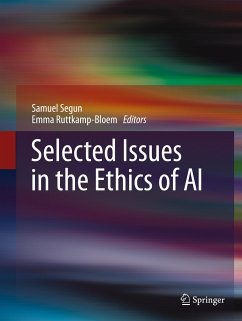
Values for a Post-Pandemic Future
Versandkostenfrei!
Versandfertig in 6-10 Tagen
38,99 €
inkl. MwSt.

PAYBACK Punkte
19 °P sammeln!
This open access book shows how value sensitive design (VSD), responsible innovation, and comprehensive engineering can guide the rapid development of technological responses to the COVID-19 crisis. Responding to the ethical challenges of data-driven technologies and other tools requires thinking about values in the context of a pandemic as well as in a post-COVID world. Instilling values must be prioritized from the beginning, not only in the emergency response to the pandemic, but in how to proceed with new societal precedents materializing, new norms of health surveillance, and new public h...
This open access book shows how value sensitive design (VSD), responsible innovation, and comprehensive engineering can guide the rapid development of technological responses to the COVID-19 crisis. Responding to the ethical challenges of data-driven technologies and other tools requires thinking about values in the context of a pandemic as well as in a post-COVID world. Instilling values must be prioritized from the beginning, not only in the emergency response to the pandemic, but in how to proceed with new societal precedents materializing, new norms of health surveillance, and new public health requirements.
The contributors with expertise in VSD bridge the gap between ethical acceptability and social acceptance. By addressing ethical acceptability and societal acceptance together, VSD guides COVID-technologies in a way that strengthens their ability to fight the virus, and outlines pathways for the resolution of moral dilemmas. This volume provides diachronic reflections on the crisis response to address long-term moral consequences in light of the post-pandemic future. Both contact-tracing apps and immunity passports must work in a multi-system environment, and will be required to succeed alongside institutions, incentive structures, regulatory bodies, and current legislation. This text appeals to students, researchers and importantly, professionals in the field.
The contributors with expertise in VSD bridge the gap between ethical acceptability and social acceptance. By addressing ethical acceptability and societal acceptance together, VSD guides COVID-technologies in a way that strengthens their ability to fight the virus, and outlines pathways for the resolution of moral dilemmas. This volume provides diachronic reflections on the crisis response to address long-term moral consequences in light of the post-pandemic future. Both contact-tracing apps and immunity passports must work in a multi-system environment, and will be required to succeed alongside institutions, incentive structures, regulatory bodies, and current legislation. This text appeals to students, researchers and importantly, professionals in the field.














